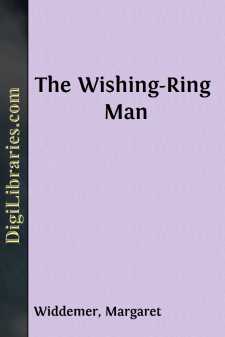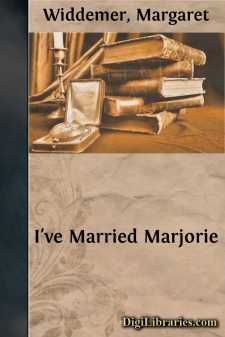Categories
- Antiques & Collectibles 13
- Architecture 36
- Art 48
- Bibles 22
- Biography & Autobiography 815
- Body, Mind & Spirit 144
- Business & Economics 28
- Children's Books 18
- Children's Fiction 14
- Computers 4
- Cooking 94
- Crafts & Hobbies 4
- Drama 346
- Education 58
- Family & Relationships 59
- Fiction 11833
- Games 19
- Gardening 17
- Health & Fitness 34
- History 1378
- House & Home 1
- Humor 147
- Juvenile Fiction 1873
- Juvenile Nonfiction 202
- Language Arts & Disciplines 89
- Law 16
- Literary Collections 686
- Literary Criticism 179
- Mathematics 13
- Medical 41
- Music 40
- Nature 179
- Non-Classifiable 1768
- Performing Arts 7
- Periodicals 1453
- Philosophy 65
- Photography 2
- Poetry 896
- Political Science 203
- Psychology 44
- Reference 154
- Religion 515
- Science 126
- Self-Help 85
- Social Science 82
- Sports & Recreation 34
- Study Aids 3
- Technology & Engineering 59
- Transportation 23
- Travel 463
- True Crime 29
Margaret Widdemer
Margaret Widdemer (1884–1978) was an American poet, novelist, and children's author who gained recognition during the early 20th century. She won the Pulitzer Prize for Poetry in 1919 for her collection "The Old Road to Paradise," sharing the award with Carl Sandburg. Widdemer's work often explored themes of social justice, domestic life, and women's rights. In addition to her poetry, she wrote popular novels such as "The Rose-Garden Husband" and was an advocate for female writers throughout her career.
Author's Books:
Sort by:
CHAPTER ONE JOY IN AMBER SATIN Joy Havenith had no business at all to be curled up on the back stairs under Great-Grand-Aunt Lucilla's picture. She ought to have been sliding sweetly up and down the long double parlors with teacups and cake, and she knew it. But she just didn't care. As a matter of fact, Aunt Lucilla and the other ancestors ought to have been in the parlors, too; but...
more...
CHAPTER I The sun shone, that morning, and even from a city office window the Spring wind could be felt, sweet and keen and heady, making you feel that you wanted to be out in it, laughing, facing toward the exciting, happy things Spring was sure to be bringing you, if you only went a little way to meet them—just a little way! Marjorie Ellison, bending over a filing cabinet in a small and solitary...
more...
The Liberry Teacher lifted her eyes from a half-made catalogue-card, eyed the relentlessly slow clock and checked a long wriggle of purest, frankest weariness. Then she gave a furtive glance around to see if the children had noticed she was off guard; for if they had she knew the whole crowd might take more liberties than they ought to, and have to be spoken to by the janitor. He could do a great deal...
more...




